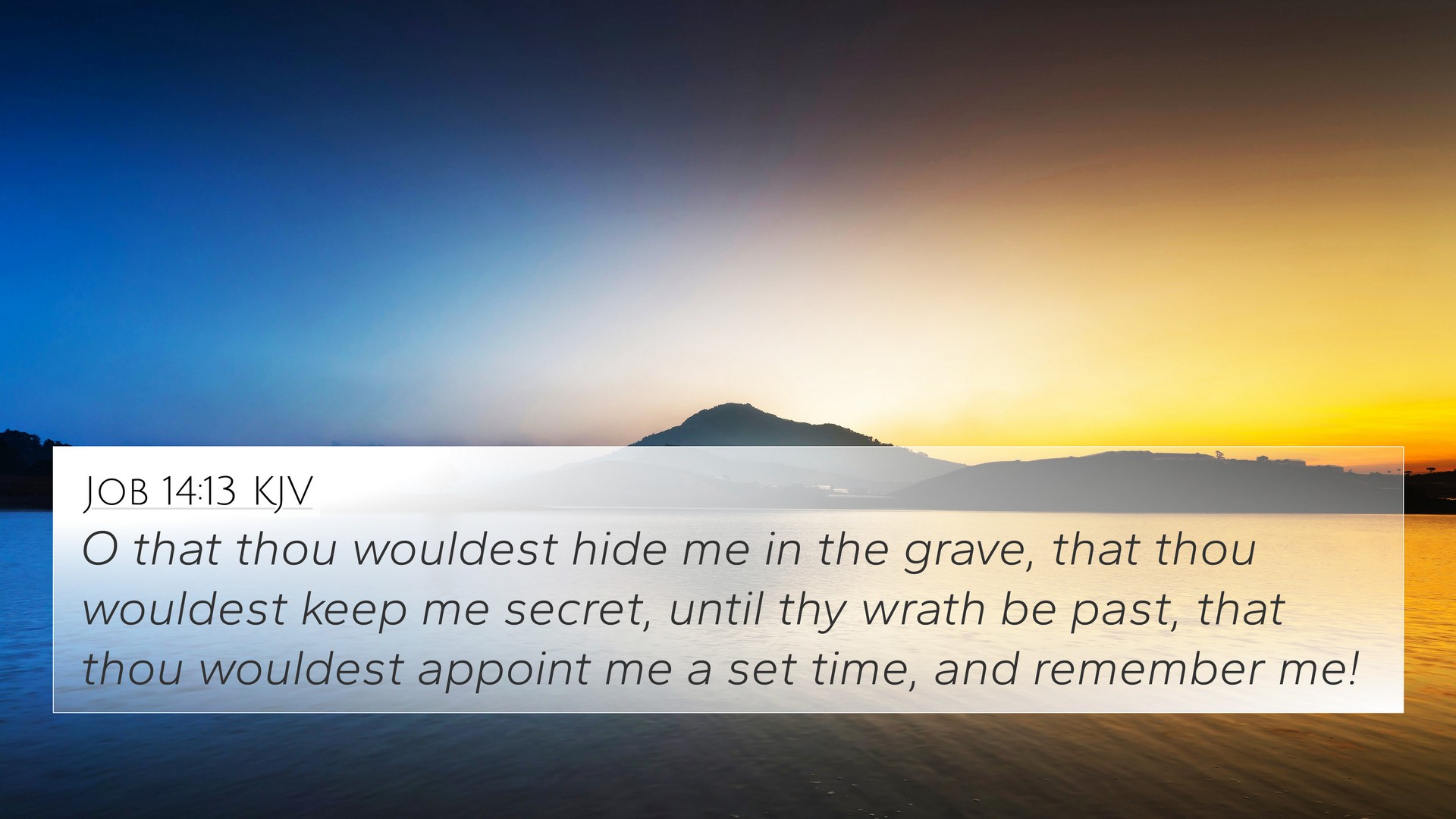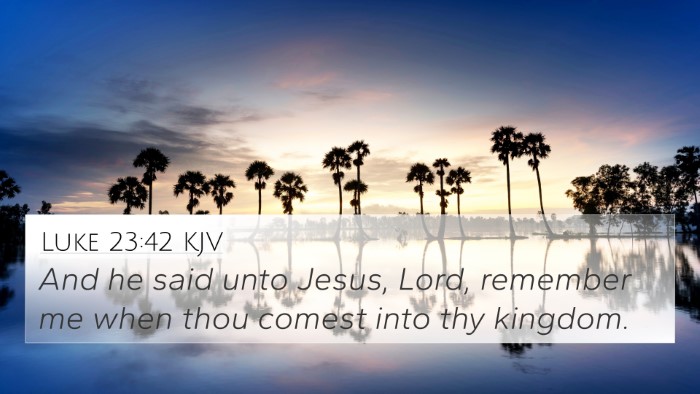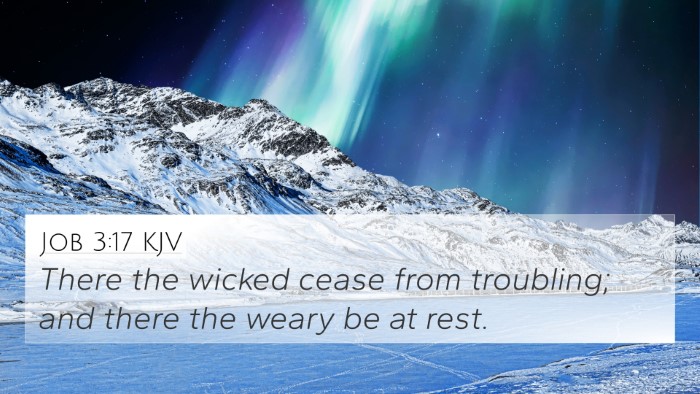Old Testament
Genesis Exodus Leviticus Numbers Deuteronomy Joshua Judges Ruth 1 Samuel 2 Samuel 1 Kings 2 Kings 1 Chronicles 2 Chronicles Ezra Nehemiah Esther Job Psalms Proverbs Ecclesiastes Song of Solomon Isaiah Jeremiah Lamentations Ezekiel Daniel Hosea Joel Amos Obadiah Jonah Micah Nahum Habakkuk Zephaniah Haggai Zechariah MalachiJob 14:13 Similar Verses
Job 14:13 Cross References
O that thou wouldest hide me in the grave, that thou wouldest keep me secret, until thy wrath be past, that thou wouldest appoint me a set time, and remember me!
Uncover the Rich Themes and Topics of This Bible Verse
Listed below are the Bible themes associated with Job 14:13. We invite you to explore each theme to gain deeper insights into the Scriptures.
Job 14:13 Cross Reference Verses
This section features a detailed cross-reference designed to enrich your understanding of the Scriptures. Below, you will find carefully selected verses that echo the themes and teachings related to Job 14:13 KJV. Click on any image to explore detailed analyses of related Bible verses and uncover deeper theological insights.
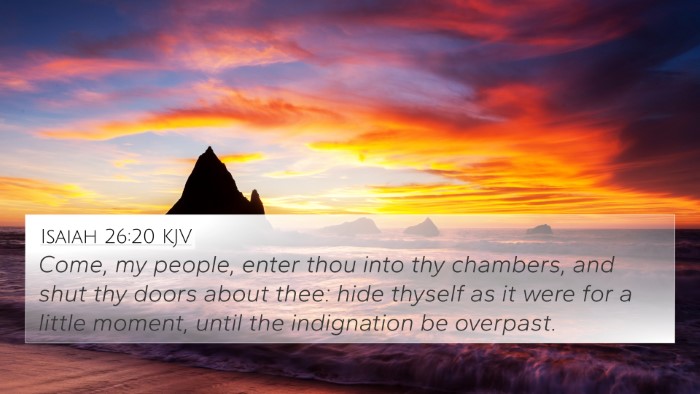
Isaiah 26:20 (KJV) »
Come, my people, enter thou into thy chambers, and shut thy doors about thee: hide thyself as it were for a little moment, until the indignation be overpast.
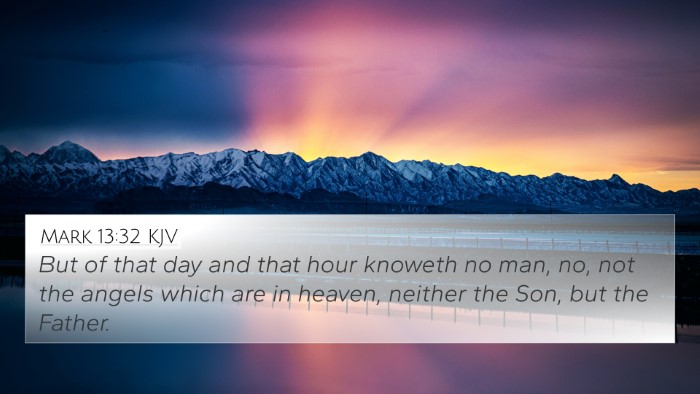
Mark 13:32 (KJV) »
But of that day and that hour knoweth no man, no, not the angels which are in heaven, neither the Son, but the Father.
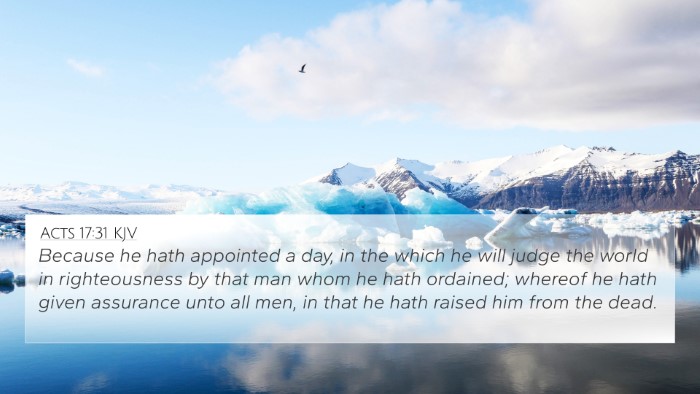
Acts 17:31 (KJV) »
Because he hath appointed a day, in the which he will judge the world in righteousness by that man whom he hath ordained; whereof he hath given assurance unto all men, in that he hath raised him from the dead.
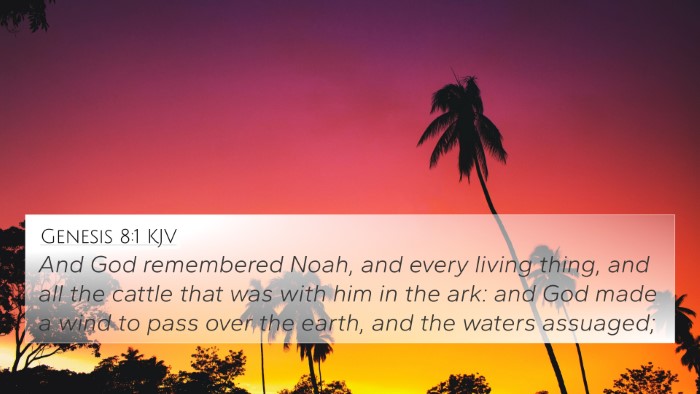
Genesis 8:1 (KJV) »
And God remembered Noah, and every living thing, and all the cattle that was with him in the ark: and God made a wind to pass over the earth, and the waters assuaged;

Isaiah 57:1 (KJV) »
The righteous perisheth, and no man layeth it to heart: and merciful men are taken away, none considering that the righteous is taken away from the evil to come.
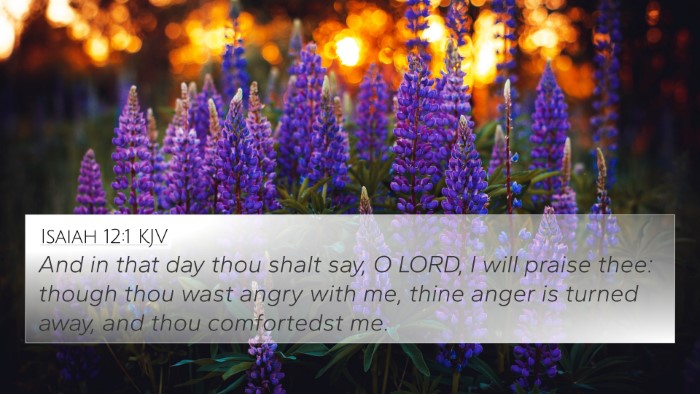
Isaiah 12:1 (KJV) »
And in that day thou shalt say, O LORD, I will praise thee: though thou wast angry with me, thine anger is turned away, and thou comfortedst me.
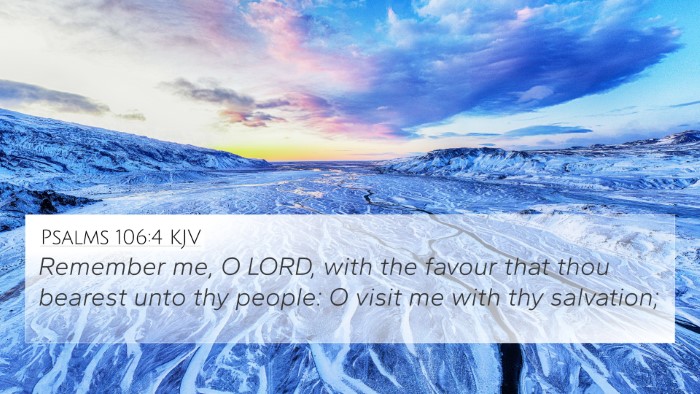
Psalms 106:4 (KJV) »
Remember me, O LORD, with the favour that thou bearest unto thy people: O visit me with thy salvation;
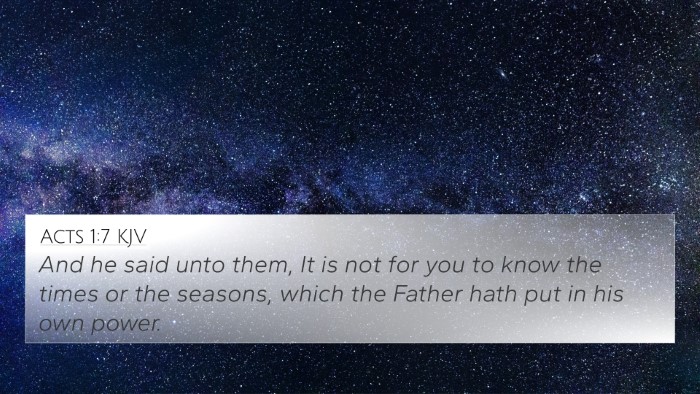
Acts 1:7 (KJV) »
And he said unto them, It is not for you to know the times or the seasons, which the Father hath put in his own power.
Job 14:13 Verse Analysis and Similar Verses
Understanding Job 14:13
Job 14:13 is a poignant verse where Job expresses a desire for respite from his suffering and a longing for hope after death. He says, "O that You would hide me in the grave, that You would conceal me until Your anger is past, that You would set me a limit and remember me!" This plea encapsulates the core themes of despair, mortality, and the hope for divine remembrance.
Summary of Insights
Drawing from public domain commentaries such as those by Matthew Henry, Albert Barnes, and Adam Clarke, we can unravel rich layers of meaning from this verse. This reflection highlights Job's profound anguish while simultaneously expressing trust in God's ultimate justice and mercy.
Contextual Background
Job, in his dialogues, grapples with the nature of human suffering and the seeming silence of God in the face of injustice. In this chapter, he appears particularly weary and longs for a reprieve, making this verse a crucial point of his lament.
Key Themes
- Despair and Mourning: Job’s desire to hide in the grave reflects his overwhelming sorrow.
- Divine Retribution: The reference to God’s anger shows Job’s understanding of divine justice.
- Hope for Redemption: The longing to be remembered indicates a trust that life (and suffering) is not without purpose.
Commentary Insights
Matthew Henry's Commentary
Matthew Henry emphasizes the depth of Job's desperation. He notes that Job sees the grave as a place of solace from God’s wrath, expressing a wish to escape his present suffering until God’s anger is abated.
Albert Barnes' Analysis
Albert Barnes highlights the theological implications of Job’s plea. He discusses the hope for a future resurrection and divine justice that underpins Job’s sorrowful request. It suggests awareness of God’s mercy that transcends earthly suffering.
Adam Clarke's Interpretation
Adam Clarke's interpretation focuses on the linguistic aspects and the emotional weight of the verse. He suggests that Job’s wish for seclusion in the grave reflects his intense feelings of abandonment and isolation during his trials.
Cross-References
Job 14:13 is connected to several other Biblical verses, providing a richer understanding of its themes. Here are some notable cross-references:
- Psalm 31:17: “Let me not be ashamed, O LORD, for I have called upon You; Let the wicked be ashamed; Let them be silent in the grave.”
- Ecclesiastes 3:20: “All go to one place; all are from the dust, and to dust all return.”
- Isaiah 26:14: “They are dead, they will not live; they are deceased, they will not rise.”
- 1 Thessalonians 4:13: “But I do not want you to be ignorant, brethren, concerning those who have fallen asleep, lest you sorrow as others who have no hope.”
- Job 10:18-19: “Why then did You bring me out of the womb? I should have been stillborn and had never been.”
- John 11:25-26: “Jesus said to her, 'I am the resurrection and the life. He who believes in Me, though he may die, he shall live.'”
- Revelation 20:13: “The sea gave up the dead who were in it, and Death and Hades delivered up the dead who were in them.”
Thematic Connections
The connections between Bible verses serve to deepen our understanding of Job’s plight. The themes of mortality and hope permeate throughout Scripture, illustrating a cohesive narrative about life, death, and resurrection.
Conclusion
Job 14:13 is a testimony of human desperation and the enduring hope for divine intervention. By cross-referencing this verse with related scriptures, readers can uncover a tapestry of Biblical dialogue that emphasizes God’s mercy, the reality of suffering, and the promise of eternal life.
Keywords and SEO Content
For those seeking to understand the connections between Bible verses and engage in comparative Bible verse analysis, the use of tools for Bible cross-referencing such as concordances or cross-reference guides can prove invaluable. When looking for Bible verses that relate to each other, this approach not only enriches our study but also strengthens our faith as we see the consistent themes throughout the Scriptures.
